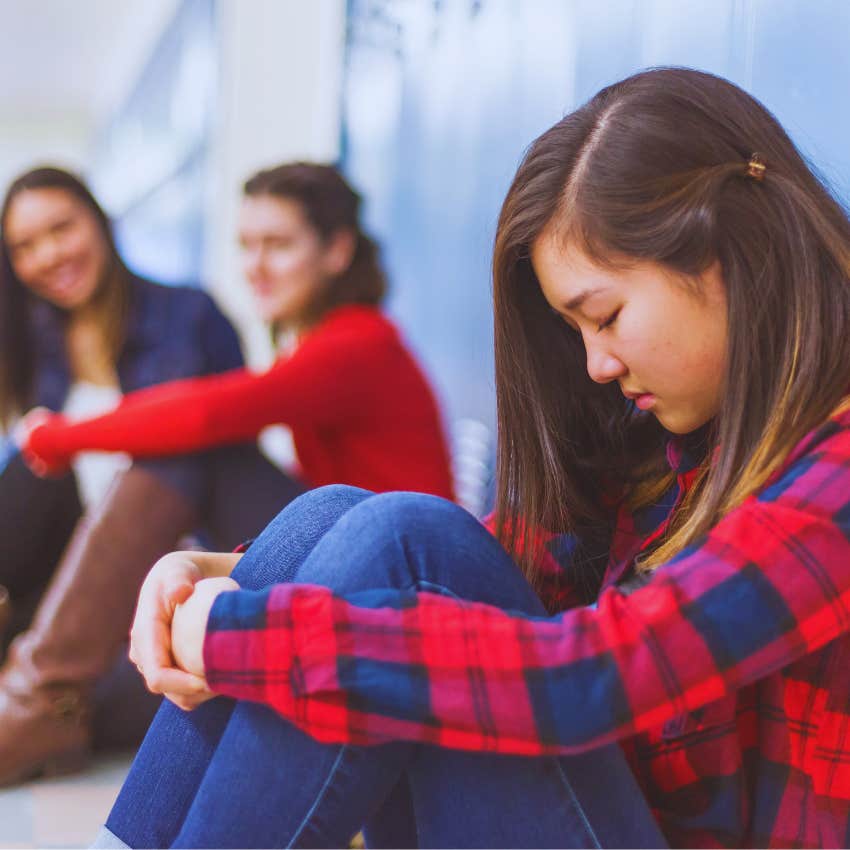The One Feeling Other People (Pretty Much) Don't Care About
You would think the people who care about don't want you to feel this way, but psychologist Guy Winch explains why they usually don't care.
 Liza Summer / Pexels via Canva
Liza Summer / Pexels via Canva Rejections are the emotional cuts and scrapes of daily life. We all experience them in magnitudes both large and small, and whether the person rejecting us is a lover, a friend, a coworker, a boss, a classmate, an institution, or even a relative stranger — they always hurt.
But while even mild rejections sting, profound, repeated, or unexpected rejections can elicit emotional pain that is literally excruciating.
We expect those around us to exhibit ample and authentic empathy for our pain when we find ourselves in the throes of a fresh rejection since everyone is familiar with it. Yet, we’re often disappointed, as even our nearest and dearest might not understand how hurt we are, how preoccupied we feel with what happened, how incapable we are of talking about anything else, or how impossible we find it to move on.
Before you question the loyalty and caring of your friends and family, consider that many studies have demonstrated that we consistently underestimate the emotional pain others feel when they get rejected.
Even more interesting, we are just as likely to underestimate the emotional pain we feel when we reflect on our own past experiences of rejection.
The question is why do these empathy gaps exist?
Why We Have Empathy Gaps for Rejection
One of the reasons rejection hurts as much as it does is that the same pathways in the brain that are activated when we get rejected are activated when we experience physical pain.
When it comes to assessing our own or others' tolerance for physical pain, it has long been established that we consistently underestimate our abilities as well as those of others to manage pain.
For example, the majority of women who had planned to give birth without pain medication change their minds once they experience the onset of contractions. We have a similar distortion when it comes to accurately assessing the emotional pain caused by rejection.
In one study, participants were paired up. One person was put through a rejection experience while the other observed them. Despite being present for the events and seeing the rejected person's emotional reactions, the observers consistently underestimated the amount of emotional pain their partner had experienced.
In another study, people were put through a rejection experience and asked to indicate their level of emotional pain immediately afterward and again one week later. By the time a week had passed, their recollections of their emotional pain became muffled such that they significantly underestimated how much hurt they had actually felt.
These empathy gaps occur because our assessments of visceral experiences (like emotional pain) are likely to be minimized unless we’re experiencing it in the moment.
In other words, we are simply incapable of accurately predicting how rejection will feel in the future, and how it will impact us (or another person) unless we’ve experienced a rejection very recently ourselves.
To illustrate this point, researchers had middle school teachers evaluate a vignette about bullying and rate the emotional pain the bullied child felt.
 Photo: FatCamera / Getty Images Signature via Canva
Photo: FatCamera / Getty Images Signature via Canva
One group of teachers was first put through a rejection experience before being asked to rate the vignette and another was not. The group of teachers who were put through the rejection experience rated the emotional pain of the student as much higher than teachers who were not put through the rejection experience, and they suggested much tougher punishments for the bully as well.
Who Should We Turn To When Seeking Empathy for Rejection
When seeking empathy and emotional support, we should always turn to those who care about us most and who have proven themselves to be skilled at expressing care, love, and emotional validation.
But suppose time has passed and our emotional wounds have not yet healed. In that case, the people most likely to 'get' how we feel (and why our wounds have not yet healed) are those who’ve recently been rejected themselves in some capacity or another (the rejection does not have to be identical in circumstance).
We should also consider, that rejections cause emotional wounds that go beyond mere emotional pain.
Rejections can damage our mood and our self-esteem, they can cause surges in anger and aggression, and they can impact our feelings of belonging. Those wounds also need to be 'treated'.
Guy Winch is a distinguished psychologist and acclaimed author. His work has been featured in The New York Times and Psychology Today.

